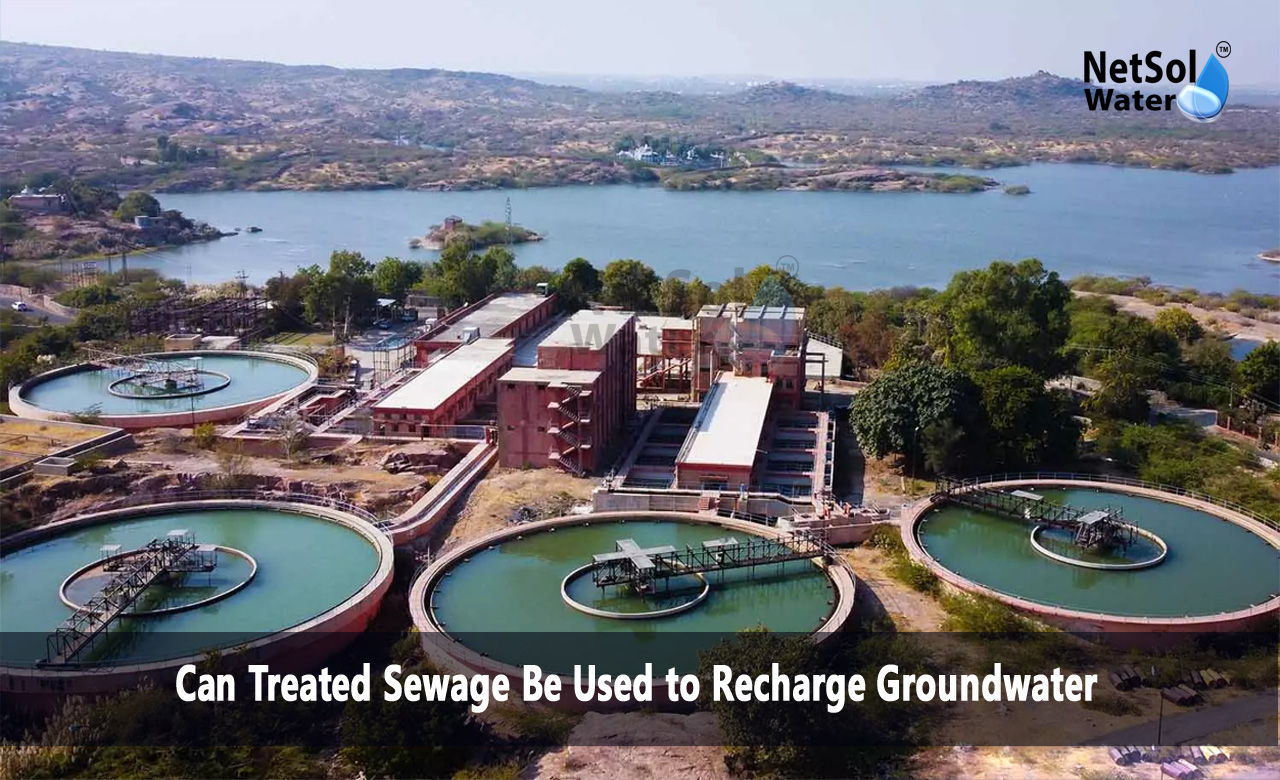Can Treated Sewage Be Used to Recharge Groundwater?
Since there is increasing dearth of water in most of the areas of India, there is a necessity to devise newer ways of conserving and recycling water. One such option that is being considered and discussed is utilizing treated sewage to recharge groundwater. The process not only aids in wastewater management but also helps natural water cycle through returning pure treated water into level ground aquifers. It's a step forward towards securing our environment and donating clean water to our next generation.
What is Groundwater Recharge?
Groundwater recharge refers to a method through which ground surface water permeates the soil slowly and infiltrates into lower layers called aquifers. The process occurs naturally during precipitation, but because of urbanization and excessive extraction of groundwater, the process of recharge has reduced. That is where human intervention such as recharging groundwater with treated sewage comes in. If well implemented, treated sewage applied in recharging groundwater can assist in this natural process and ensure a stable underground water level.
How Treated Sewage Assists in Groundwater Recharge?
Sewage water contains waste, pollutants and are full of toxic material. But after this sewage undergoes a series of processes – physical screening, biological treatment, and chemical disinfection, as a result, it is suitable for certain non-potable uses. Recharging groundwater with the clean, treated water is such an application.
In Indian cities, the treated sewage is being diverted more and more into ponds, wells, or recharge pits from whence percolates underground. In this way, instead of being wasted or polluting the rivers, the water is being recycled extensively. Treated sewage to recharge ground water sustains the ground water table especially those prone to drought or those areas already over extracted.
Indian Efforts and Examples
Recharge of groundwater by treated sewage is increasingly being taken up in India. State and local governments have initiated projects integrating wastewater treatment and groundwater management:
Delhi: The Delhi Jal Board has been attempting to utilize treated sewage to recharge groundwater in some of the pockets in the city. Arrangements are underway to construct additional structures for recharge to hold treated wastewater in a secure manner.
Hyderabad: Treated sewage flowing through the city's sewage treatment plants is being diverted into lakes and open land areas which provide natural seepage into the groundwater level.
Tamil Nadu: In some places, the state has been implementing sewage reuse projects to recharge tanks and ponds which naturally feed groundwater.
These are just some ways in which Indian cities are gradually embracing safe and responsible methods for reusing treated sewage and storing groundwater.
Read: Sewage Treatment Plant Manufacturer
Advantages of Recharging Groundwater Using Treated Sewage
Groundwater recharging using treated sewage has the following advantages:
· Reduces Overuse of Groundwater: It restores the water level in underground aquifers, which are usually depleted.
· Prevents Contamination of Water: Rather than releasing treated sewage into lakes or rivers, groundwater recharging prevents it from contaminating surface water bodies.
· Encourages Reuse of Wastewater: It increases the utilization of wastewater by making it a precious commodity.
· Helps Agriculture: With increased levels of groundwater, farmers find it easier to use water for irrigation.
· Enhances Urban Water Management: Cities can avoid overloading freshwater resources by developing a balanced water cycle.
Key Factors
Although this approach has several advantages, the following are two factors to bear in mind:
Good Treatment Is Absolutely Necessary: Sewage to be used for recharging needs to be treated properly. Compromising on treatment can affect groundwater quality in a negative manner.
Testing and Monitoring: There should be regular monitoring to observe that recharged water does not contain any harmful material going into the ground.
Public Perception and Awareness: People can be in doubt that sewage water could be utilized for such a procedure. Public awareness is necessary in developing confidence in the process.
Conclusion
Using treated sewage to recharge groundwater is a smart and sustainable way to manage water in India. It addresses two issues at the stroke of one — wastewater discharge and depleting groundwater. With proper planning, treatment, and citizen involvement, the operation can be a valuable addition to additional water supply in the country. It's high time that such innovative methods are adopted and water conservation taken up at all villages and towns.
Do you need an advice or assistance on selecting the best water and waste water treatment unit? We have solutions for all your problems!
Let us know your problem, our experts will make sure that it goes away.
For an assistance or related query,
Call on +91-9650608473 Or write us at enquiry@netsolwater.com



